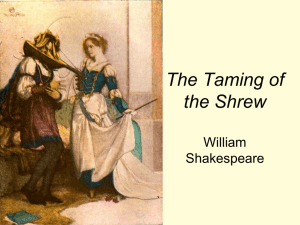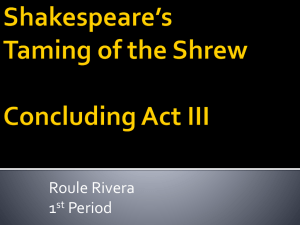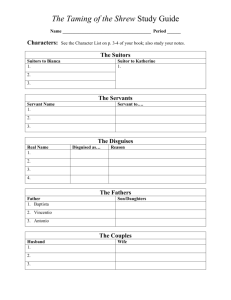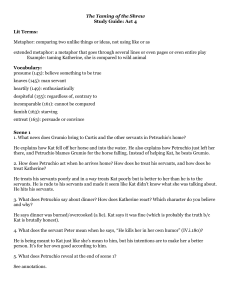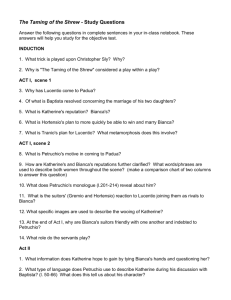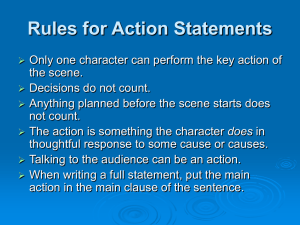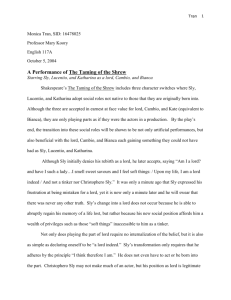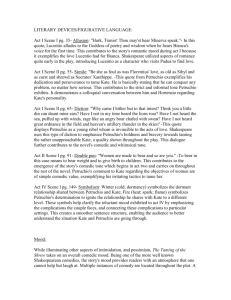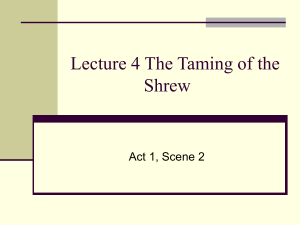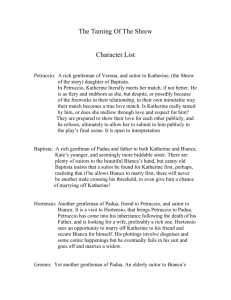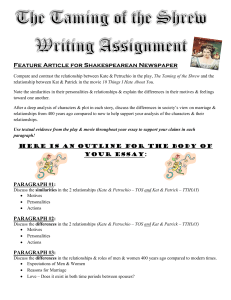The Taming of the Shrew
advertisement
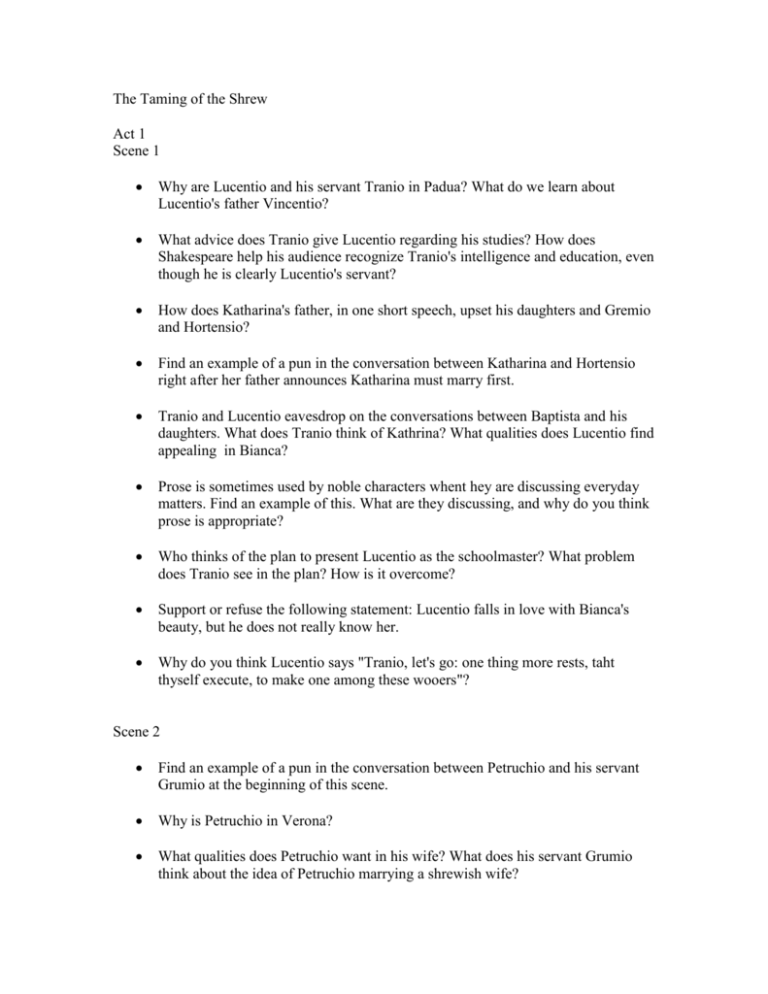
The Taming of the Shrew Act 1 Scene 1 Why are Lucentio and his servant Tranio in Padua? What do we learn about Lucentio's father Vincentio? What advice does Tranio give Lucentio regarding his studies? How does Shakespeare help his audience recognize Tranio's intelligence and education, even though he is clearly Lucentio's servant? How does Katharina's father, in one short speech, upset his daughters and Gremio and Hortensio? Find an example of a pun in the conversation between Katharina and Hortensio right after her father announces Katharina must marry first. Tranio and Lucentio eavesdrop on the conversations between Baptista and his daughters. What does Tranio think of Kathrina? What qualities does Lucentio find appealing in Bianca? Prose is sometimes used by noble characters whent hey are discussing everyday matters. Find an example of this. What are they discussing, and why do you think prose is appropriate? Who thinks of the plan to present Lucentio as the schoolmaster? What problem does Tranio see in the plan? How is it overcome? Support or refuse the following statement: Lucentio falls in love with Bianca's beauty, but he does not really know her. Why do you think Lucentio says "Tranio, let's go: one thing more rests, taht thyself execute, to make one among these wooers"? Scene 2 Find an example of a pun in the conversation between Petruchio and his servant Grumio at the beginning of this scene. Why is Petruchio in Verona? What qualities does Petruchio want in his wife? What does his servant Grumio think about the idea of Petruchio marrying a shrewish wife? Why does Hortensio want to accompany Petruchio to Katharina's house? Define "pantaloon." Find an example of sarcasm spoken by Grumio that refers to the idea that Gremio is too old to be wooing Bianca. What does Hortensio mean whe he says, "I promised we would be contributors And bear his charge of wooing, whatsoe'er"? What is Gremio's response? When Tranio, disguised as Lucentio, declares his intention to woo Biance, what do Hortensio and Gremio want? What is Tranio's response? Act 2 Scene 1 How does katharina's relationship with her father motivate her to continue her shrewish behavior? What names are Hortensio and Lucentio using in their disguises as teachers? Petruchio defines his idea of a proper wife through the adjectives he uses to compliment Katharina. List the words Petruchio used to describe Katharina. How is this humorous? One of the themes of this paly is to present the reasons people get married. What arrangement does Petruchio make with Baptista before trying to win Katharina's love? Comment on what these arrangements say about a man's reasons for marrying. Animal imagery is an important theme in this play. Find an example of it when Baptista discusses Katharina's ability to learn the lute wit Hortensio. What does this kind of comparison suggest about how men feel about their wives? How does Petruchio plan to deal with Katharina's shrewish behavior int he following circumstances: if she rails? if she frowns? if she is mute? if she tells him to leave? if she refuses to marry him? Why does Katharina strike Petruchio? What is his reponse? In the following passage, what does the reader learn about Petruchio's age? Katharina:Well aim'd if such a young one. Petruchio:Now, by Saint George, I am too young for you. Katharina:Yet you are wither'd. What evidence is there that Katharina is enjoying her conversation with Petruchio and respects him? What does Petruchio tell Tranio and Gremio about the way Katharina behaves when they are alone? Why is this tactic a clever move? How does Baptista decide who is going to marry Bianca? In what way are these marriage negotiations, unlike those between Baptista and Petruchio? Tranio (pretending to be Lucentio) outbids Gremio, but the marriage contract is not secure. What condition does Baptista put on the marriage between Tranio and Bianca? How does Tranio plan to satisfy Baptista? List three ways Shakespeare continues the theme of appearance versus reality i Acts 1 and 2. Prove the following statement: Tranio is unusual servant and possesses many of the qualities of a nobleman.

